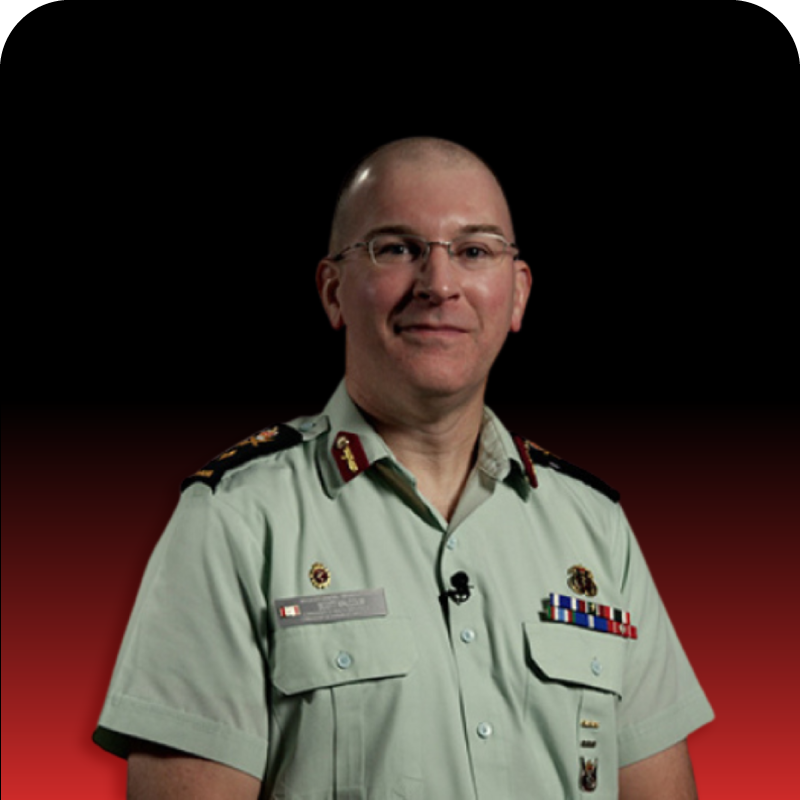When Brigadier-General Scott Malcolm, the Canadian Armed Forces (CAF) Surgeon General, addressed the 200+ cohort of ShadAnywhere participants, he kicked off his keynote by telling them where he’s from: Cape Breton Island, Nova Scotia. More specifically, he’s from a small corner of the island called Lower River Inhabitants, a community of about 17 houses often not large enough to be reflected on a map.

“I share this with young people because I want them to know that regardless of where they come from and what they’ve experienced or haven’t experienced, if they set their sights on something and put the work in, they can get to wherever they envision themselves going.”
Dreaming big and following his ambition is something that was reinforced for Scott during his own time at Shad in 1993 when he attended the program at Acadia University. Shad gave him a window into post-secondary, allowing him the opportunity to explore the STEAM topics he loved alongside a group of peers who were just as excited to learn as he was, something he didn’t always experience at school.
“Shad really set the stage for what I could expect in my undergraduate experience, but also introduced me to kids who thought a bit more like me. I was a ‘science guy’, so exploring STEAM was exciting for me, but it was great to do it alongside other kids who shared a keen interest in it like I did.”
Scott had long dreamed of attending an Ivy League school when an article in the provincial newspaper about a fellow Nova Scotia student inspired him to apply to Harvard University in Massachusetts. “I just believed that if another student from the province could do it, why not me?” He was accepted into their Bachelor of Biochemistry program, from which he graduated in 1997.
Like Shad, Scott is a big believer in mentorship, understanding how his own path was shaped by the influential people in his life. He shared that when he was in high school, he worked for Shoppers Drug Mart where he formed a friendship with the Pharmacist, who encouraged him to pursue medicine given his love of science and education. So, after he finished his undergraduate degree, Scott applied and was accepted to medical school at the University of Dalhousie back home in Nova Scotia. It was here that his ascendance through the ranks of the Canadian Armed Forces began in 1999.
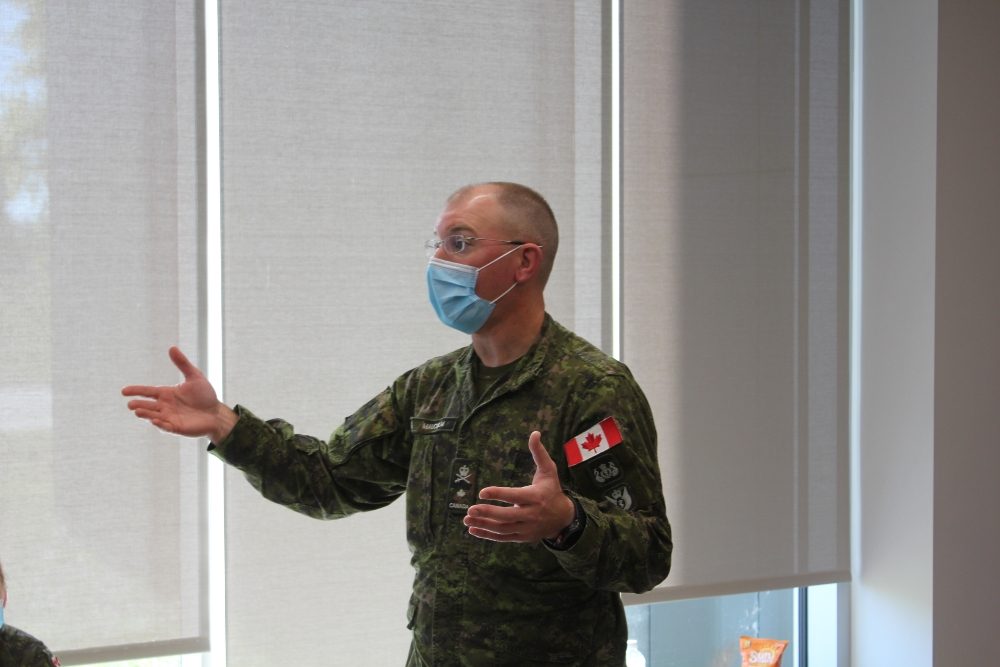
“I had it in my head for a while that I wanted to join the military, but it was at medical school where I, serendipitously, worked with a guy whose wife was a personal selection officer and she helped me navigate the Medical Officer Training Plan that allowed me to join the army in a medical capacity.”
Scott experienced his first deployment to Volika Kledusa in Bosnia Herzegovina while he was still in his medical training. He was part of a peace support mission through the North Atlantic Treaty Organization (NATO) sent to help maintain stability in a country that had experienced 20 years of war. “We were really there in order to help ensure that peace continued to progress.”
His next mission was much less secure, arriving in Sri Lanka in 2004-2005 to render aid after a massive tsunami devastated the region.
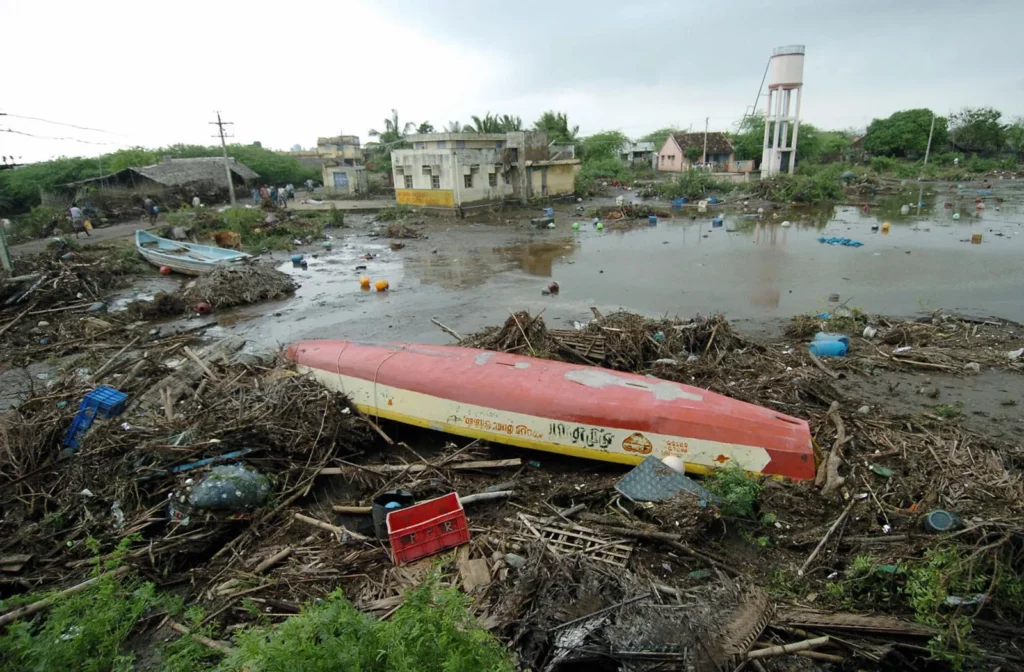
“We saw almost 8,000 patients in the 40 days that we were deployed. During a disaster, we also need to provide fresh water and we arrived with machines that use reverse osmosis technology and produced 3.5 million liters of drinking water, which is critical in these situations.”
Scott was first deployed to Afghanistan in 2008-2009, arriving in Kandahar in southern Afghanistan where he was responsible for a team of approximately 90 doctors, medical technicians, and physician assistants.
“We were required to help provide medical care right at the frontline during battles, so I was involved in the medical planning to ensure that if folks were injured, we’d be able to quickly evacuate them back to the Kandahar airfield where they were able to receive life-saving care. We also treated many of our NATO partners in addition to local civilians, including children, who were injured in the conflict.”
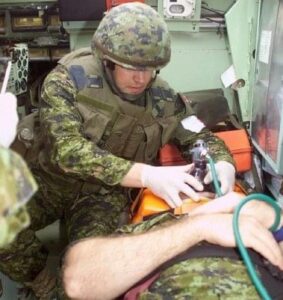
Scott continued to be promoted through the ranks of the CAF and was again deployed to Afghanistan on a training mission in 2013-2014. He arrived at the Afghan National Medical Hospital in Kabul along with a number of medical specialists with the goal of helping Afghan surgeons, internal medicine specialists, and anesthesiologists improve their delivery of care to their fellow soldiers.
“We really wanted to help them save more lives and build the ability to do things on their own because they had lots of skilled surgeons and other specialists. But we also learned a lot because in countries where they don’t have access to all the same things that we do, they sometimes act with more ingenuity, which I appreciate.”
Though these were situations where leadership was critical, Scott stressed to the Shads that good leadership is not just important in war zones but can make the difference between success and failure in many situations. He knows this from his own experience managing a number of crisis response teams during the Covid-19 pandemic as part of his elevated rank as Commander of Health Services Division.
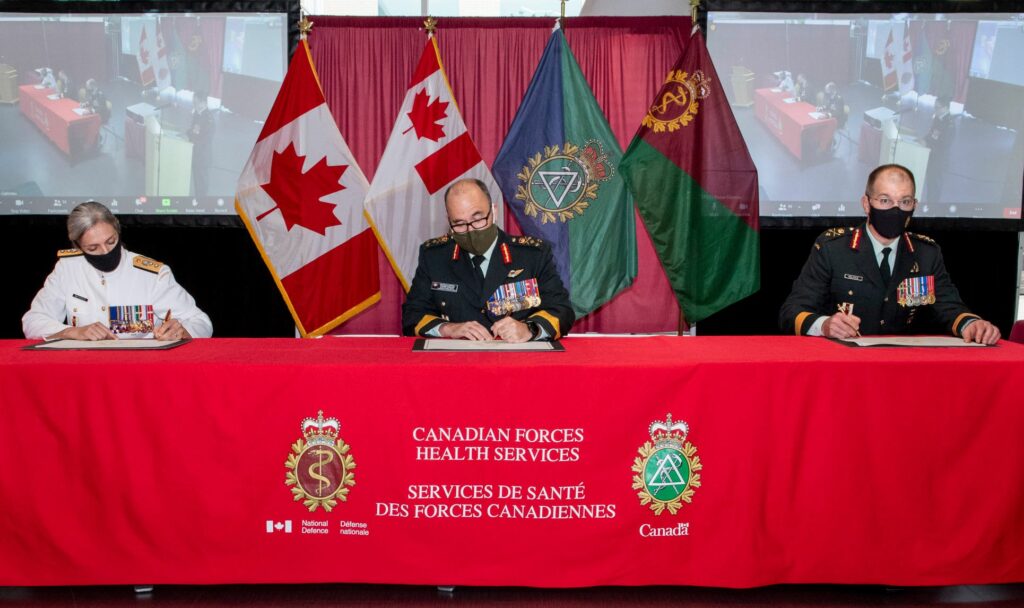
“I was involved in the medical planning to help repatriate about 700 Canadians who were stranded in Wuhan China at the onset of the pandemic. This was early days of 2020 when we really didn’t know anything about SARS-CoV-2 and it’s one of the things that still amazes me, all the doctors and nurses and med techs on my team raising their hand to go save Canadians while facing a disease that they knew nothing at all about.”
Scott and his team were also deployed to long term care homes to care for some of Canada’s most vulnerable, and played an integral role in the vaccine rollout to help ensure there were enough people available to get as many shots in arms as possible quickly, which took some creative problem solving.
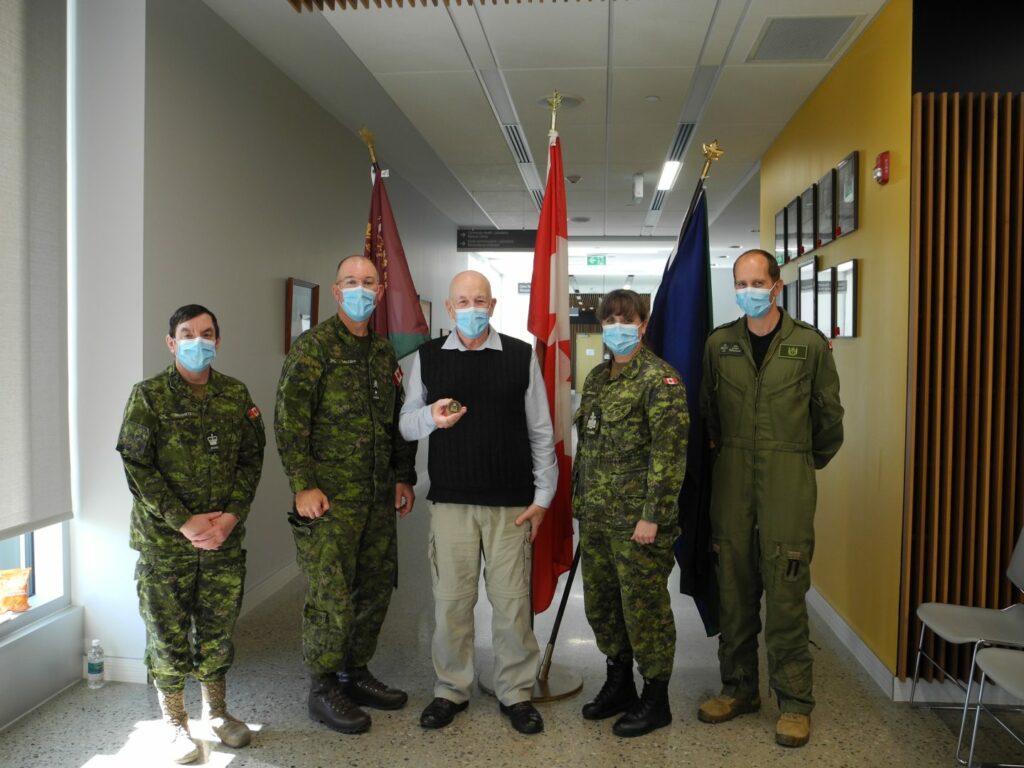
“In the early days, they were mostly just focused on doctors and nurses delivering the vaccine, but I tried to bring some ingenuity in and argue that if people have health care training, we can get them trained up on how to give a vaccination. That way we take advantage of all the other health care workers, which was novel thinking at the time.”
Using innovative approaches to tackling a challenge is what Scott hopes to inspire in the Shads as they continue to work on their design solutions. He attributes much of his professional success to the skills he honed through programs like Shad, which have helped him rise to the challenge when facing a crisis, viewing these moments as opportunities to put into practice all that he’s learned and engage those around him who can help.
“When problems are complex and chaotic, like the pandemic was, the situation becomes novel. And there is no answer, there’s only an approach. And so, for me, it meant bringing together the leadership pieces, the ability to say that the situation is complicated, who do I need to identify as stakeholders and whose points of view do I need to bring in? And then how do I be disciplined enough to make a decision and move forward, not knowing if it’s going to be right or not? That’s when you have to trust yourself and the people around you, understanding that it comes down to teamwork.”
We know the Shads will take his words to heart as they rise to the design challenge before them this summer.
